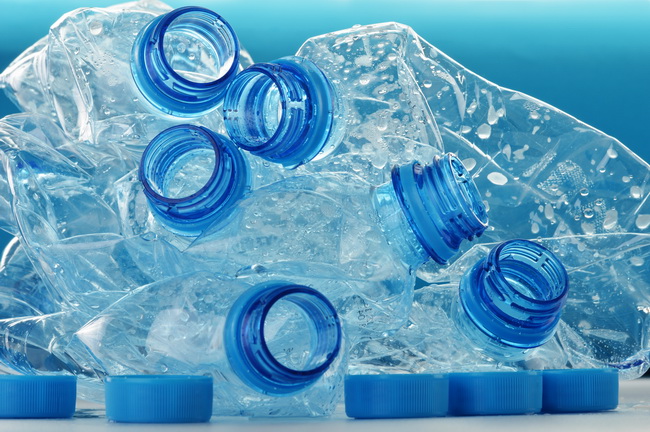- Make It Yourself Lavender Heart-Shaped Bath Bombs!
- 20 Things You Never Knew About “Down There”
- 12 Best Foods For Those Suffering From Arthritis Pain
- 12 Personal Hygiene Mistakes Almost Everyone Makes (Mom Never Told You About #4!)
- 15 Medicinal Plants And Herbs From The Cherokee People
- 12 Mind-Blowing Benefits Of Drinking Coconut Water During Pregnancy
- 12 Outstanding Winter Foods That Won’t Fatten You Up Like A Christmas Turkey
The Problem With All This Plastic (It’s A Bigger Problem Than You Think!)

Photo credit: bigstock.com
As with everything in this world, there is a payoff for convenience. We can fly around the world in hours, but the air smells of gasoline. We can drive through and get hot food in just a few minutes, but the health quality of this food leaves a great deal to be desired. Our love of inexpensive plastic products has made food and water distribution and storage much easier, but the damage that plastic is doing to both our health and the environment is detrimental, to say the least.
Our health, as well as the health of the planet, would benefit greatly if every person on this planet drastically reduced their use of plastic.
Why should we do this? Isn’t plastic recyclable? Well, yes and no. Let’s take a look at the problems with plastic one at a time.
First, there are certain chemicals in plastic that have received quite a bit of attention lately for the harm they cause, as well as their ability to leech out of the plastic and into whatever food or beverage the plastic is holding. BPA is often added to plastic to make them more durable, but did you know that before it was added to plastic, it was fed to cows and chickens to make them gain weight? Perhaps it also causes humans to gain weight as well. No one knows the answer as no studies have been done, but there have been plenty of studies linking BPA to hormonal imbalance as it mimics the effects of estrogen, which can also cause weight gain.
BPA has also been in numerous studies linking it to miscarriages, diabetes, decreased sperm quality, breast cancer and prostate cancer, allergies, and neurological problems, including ADHD.
More than 92 percent of people tested had detectable levels of BPA and other types of plastic chemicals in their blood stream, some of these subjects being newborn infants.
Another chemical in plastic is called phthalates, which are also found — believe it or not — in the air we breathe, mostly indoors. Many countries have banned phthalates, including the European Union as far back as 2005. Phthalates are known to be harmful to men and boys, especially when they have been exposed in utero. Phthalates are also linked to infertility in men, immune system impairment, and reduced testosterone levels.
One expert in endocrine health states that the rising rates of obesity in both humans and animals (including wild animals whose diets remain unchanged) are frightening. Most chemicals involved in making plastic are known endocrine disruptors, which might very well explain why we are seeing these problems all over the world.
Also, when you consider just how long it takes plastic to break down (estimated at thousands of years) and the high levels of plastic found even in areas where humans do not live, it’s pretty easy to see just how big of a problem the whole world has with plastic.
Continue to Page 2
































